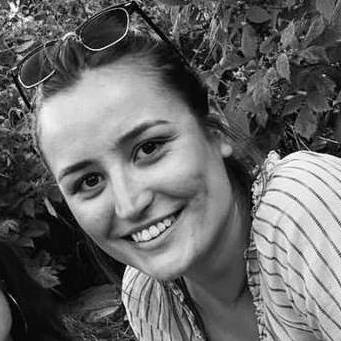Glamorised dystopia, redirected narrative and travelling hotels, we look at the consumer trends of 2019…

Glamorised dystopia, redirected narrative and travelling hotels, we look at the consumer trends of 2019…

Glamorised dystopia, redirected narrative and travelling hotels, we look at the consumer trends of 2019…
No longer are holiday makers satisfied with bed and breakfast, or even 5 stars; they want an unforgettable and differentiated experience that combines convenience and luxury.
The hospitality industry has responded with travelling lodges, high end travel vans and shepherd huts, secret cabin retreats and floating urban hotels. Similar to the pop up revolution in the food industry, these mobile destinations provide unusual yet practical experiences, as well as an extra layer of adventure that blows the typical beach break out of the water.
But you don’t have to be in the hospitality industry to benefit from the pop up business model. It’s the experiential novelty and convenience that consumers value, which can be applied cross-sector.
Consumers are demanding authenticity, from the food they’re eating to the furniture that fills their homes. And what’s more authentic than a podcast? With nearly six million people in the UK tuning into podcasts each week, it’s safe to say that they have boomed. Brands have jumped on this, using podcasts as an opportunity to speak directly to their niche.
Whether its millennial dads, whiskey connoisseurs, or new age wellness, this organic form of marketing has the ability to show real brand personality.
As well as podcasts, brands are using redirected narrative to confront negative consumer perceptions. Social media, real time news and public forums mean that brands are being forced to address their negative press. McDonald’s #ReindeerReady campaign focused on the healthy snacks they had to offer in 2018’s Christmas advert.
A comical Ikea ad highlights the fact that the gentry would never (knowingly) have Ikea furniture in their home. And a confusing Old Spice advert has left watchers intrigued, as their repertoire of commercials continues to successfully reinvent the brand for a younger audience, whilst leaving a smile on viewer’s faces.
Redirecting your narrative and striving for authenticity through acceptance can be slightly daunting and possibly risky (you don’t want to alienate consumers into seeing your brand the wrong way), but none the less a rewarding way of reaffirming your company in the mind of the consumer.
When Bird Box hit Netflix in December, reaching 80 million member’s households in the first month, it confirmed our suspicions: dystopian resurgence is everywhere, and it shows no sign of slowing down in 2019. It’s peppered throughout literature and pop culture, as well as creeping onto the catwalk and red carpets, often in the form of the Kardashian-West clan.
So why do we love it so much? Post-apocalyptic dystopia provides us with a form of escapism that brings our environmental and political fears to life, in an entertaining form. The message to take form this is that it’s possible for brands to comment on political and social matters in a digestible and entertaining way, remaining relevant, yet impartial.
Looking ahead to what we can expect to see in 2019 can be intimidating for brands, as they endeavor to remain significant. But it needn’t be. Whilst we can’t see ourselves dressing for the end of the world or holidaying in a hut this year, one thing is for sure: authenticity and originality will never get old.
Follow us on:
Terms of use Privacy policy Cookie statement Modern slavery statement Tax strategy
Copyright ©2025 Indicia Worldwide
